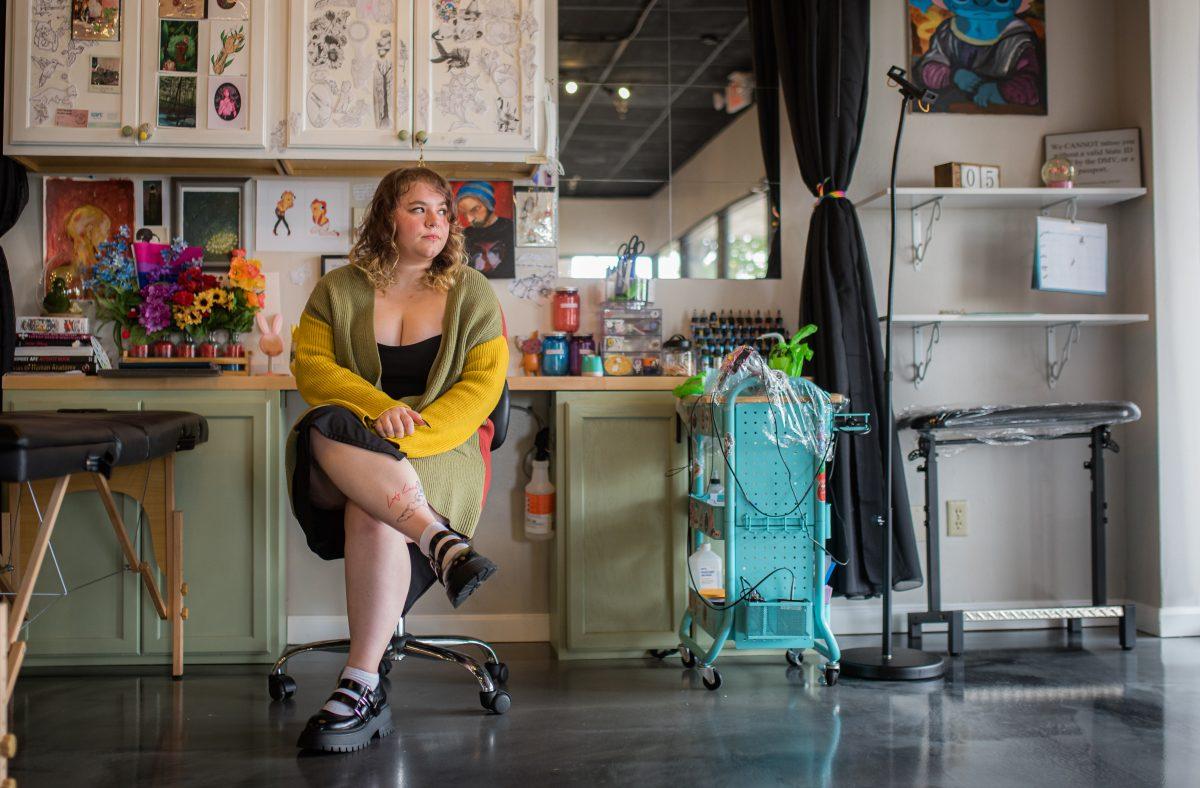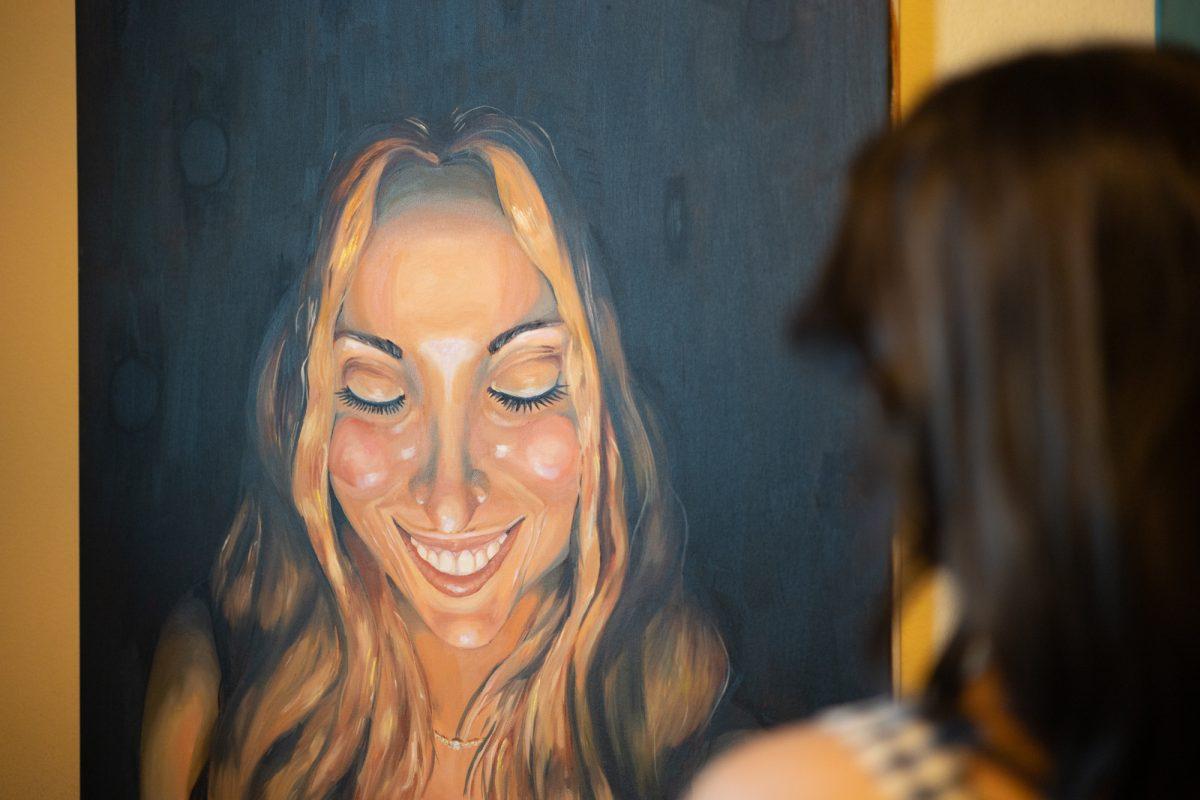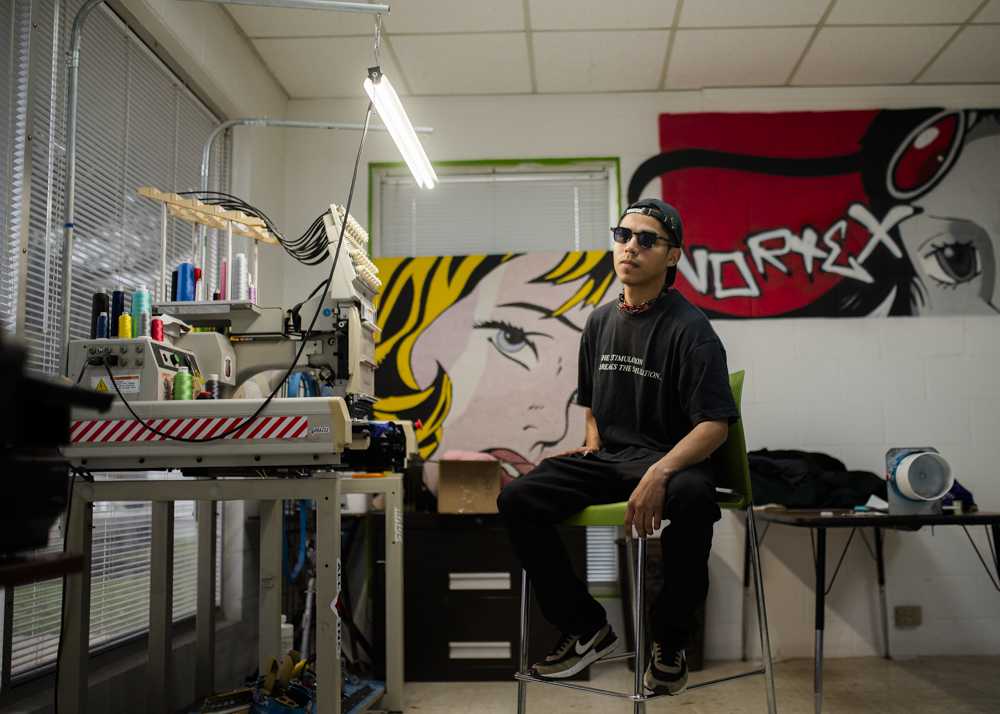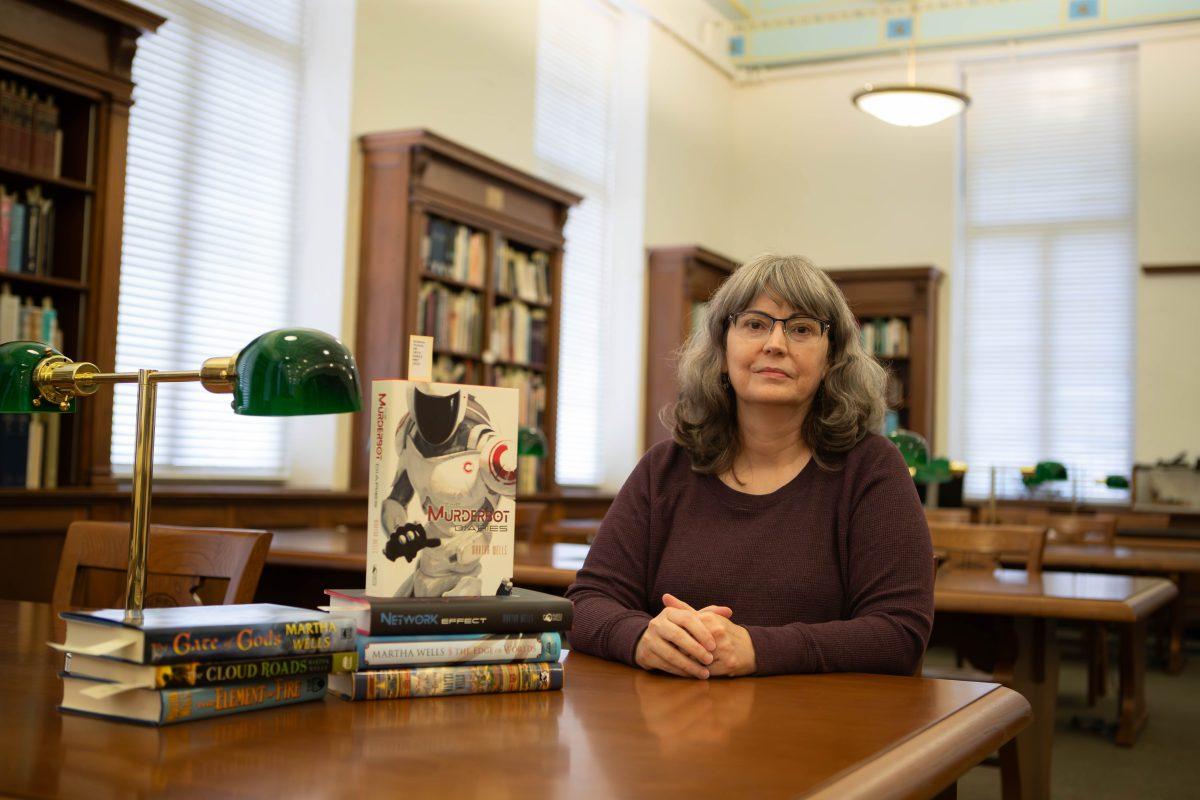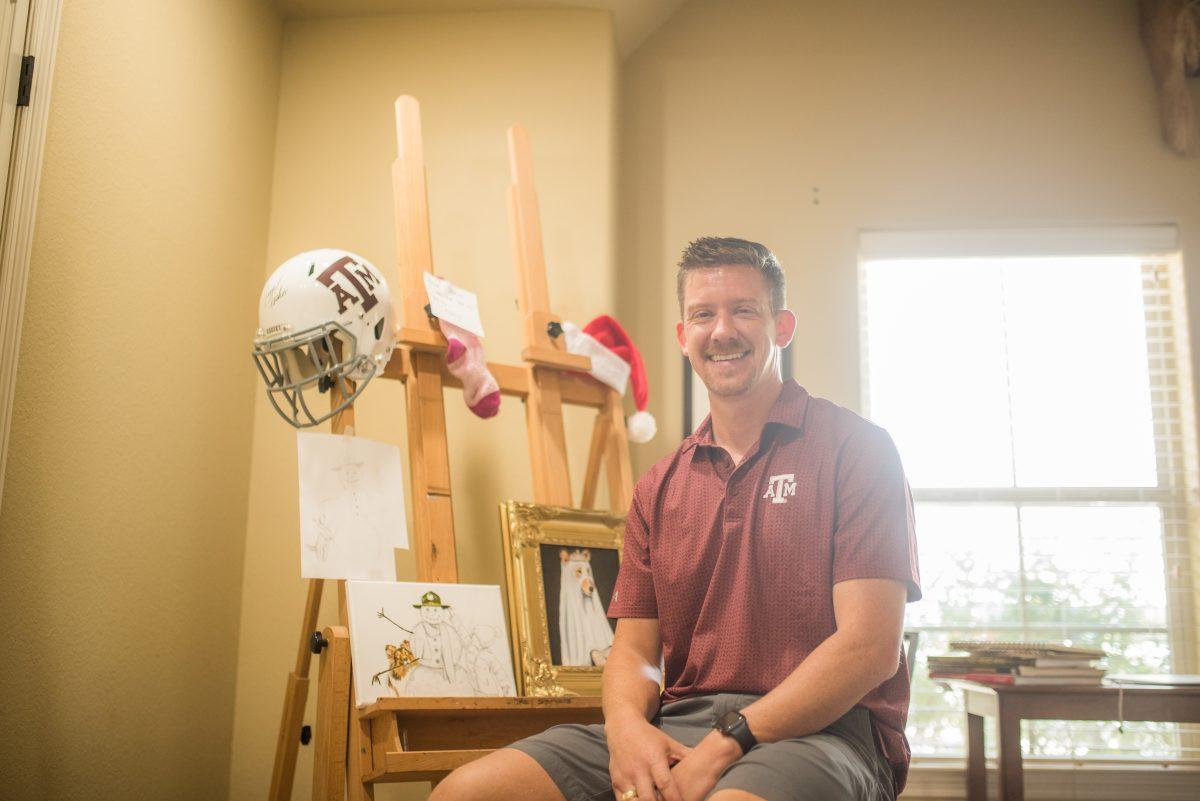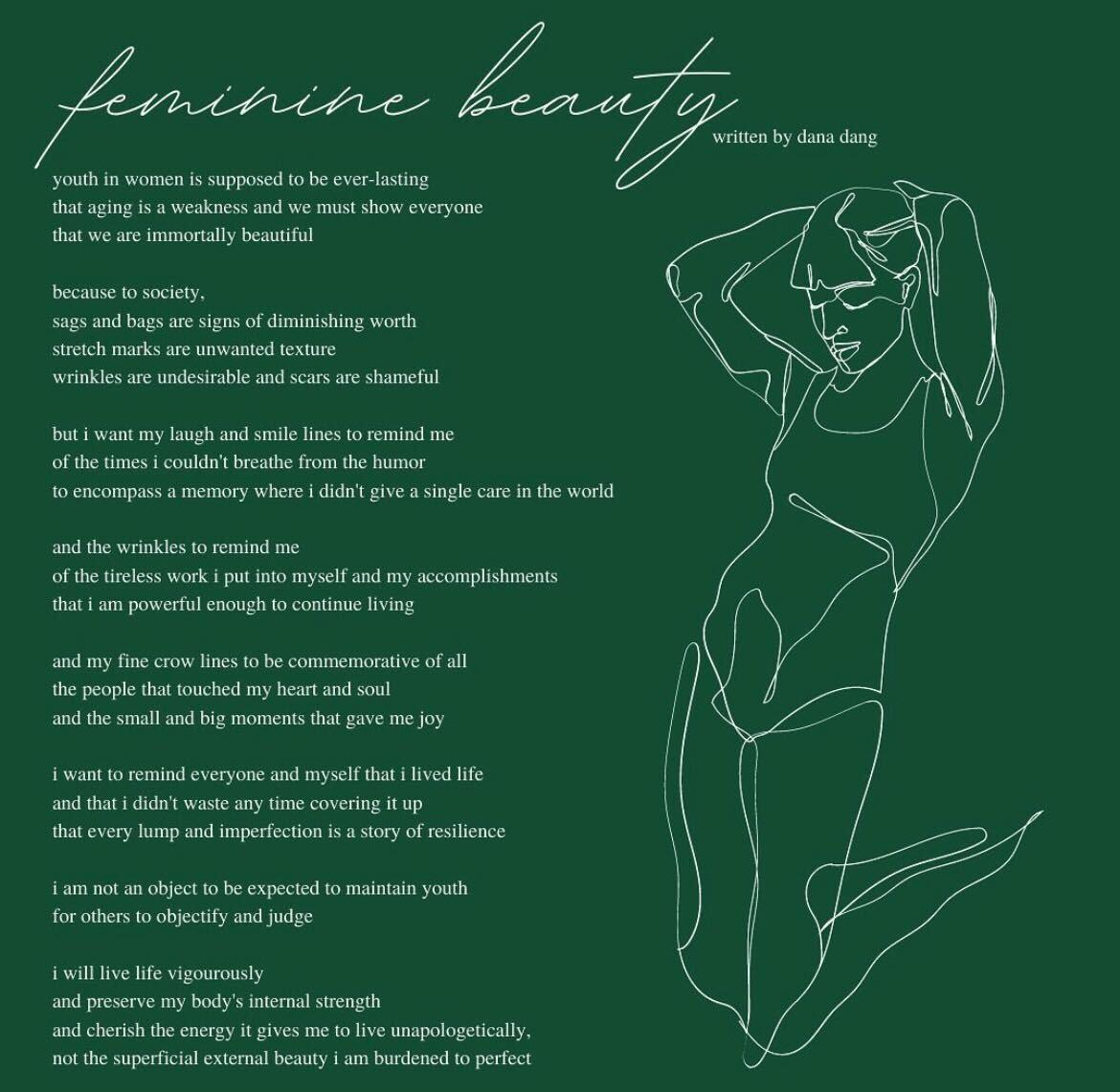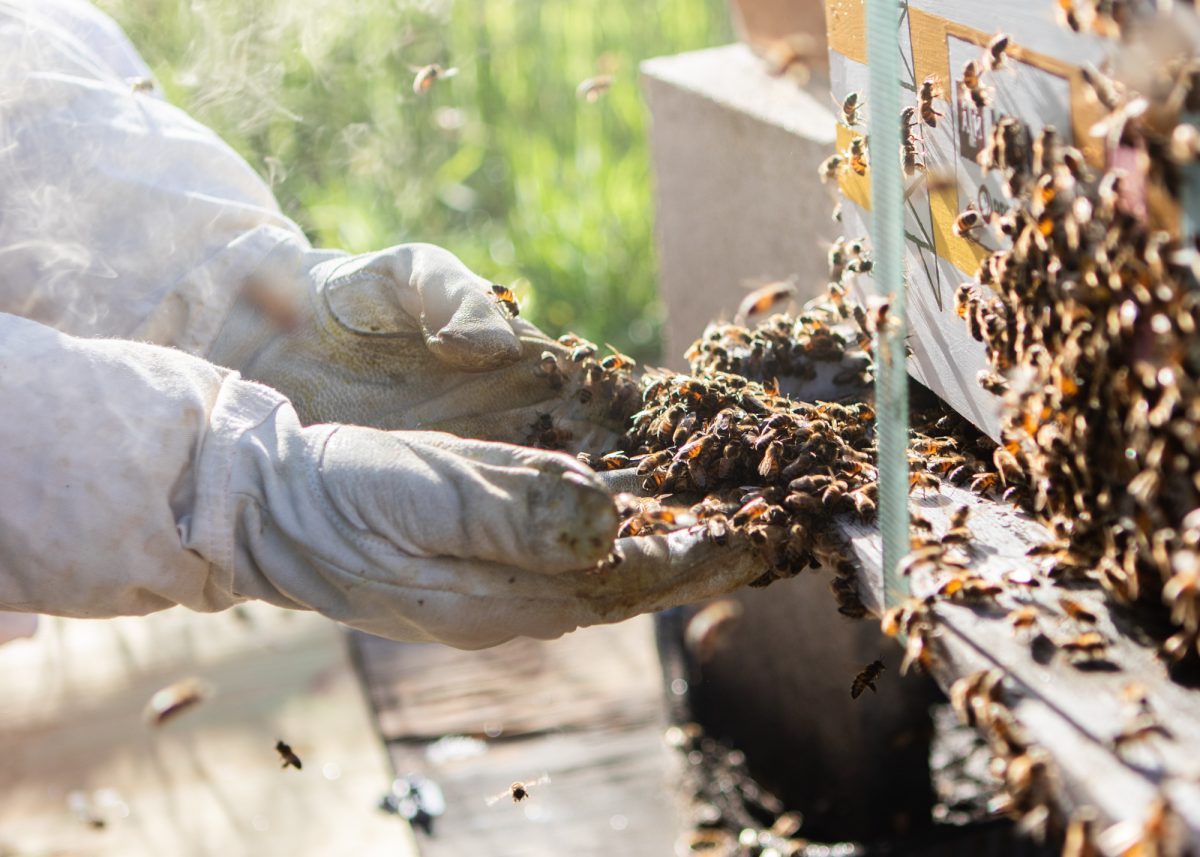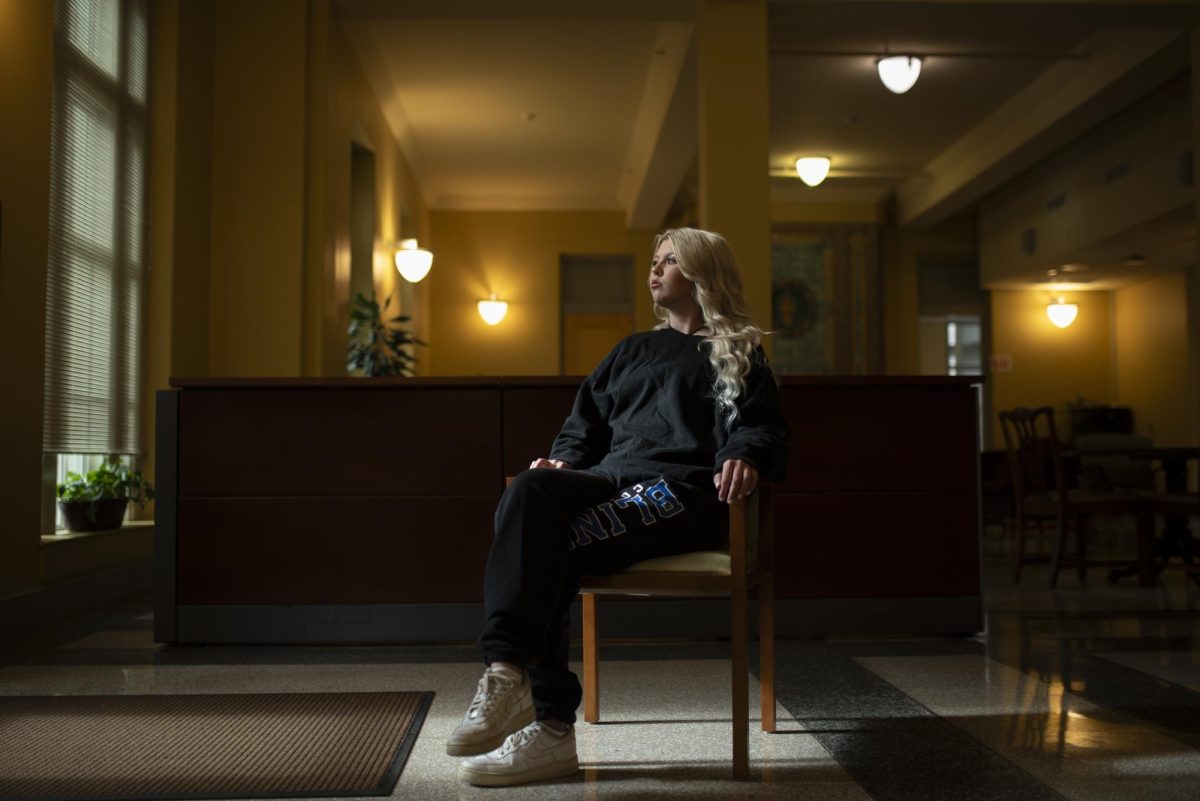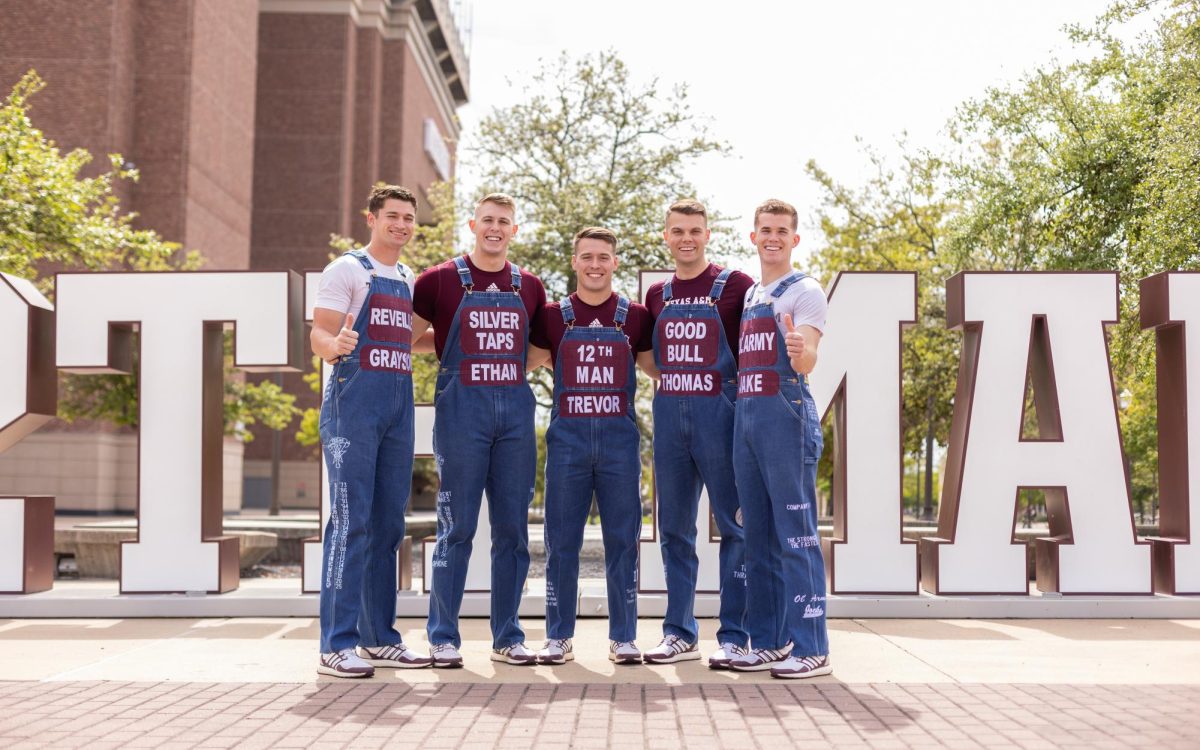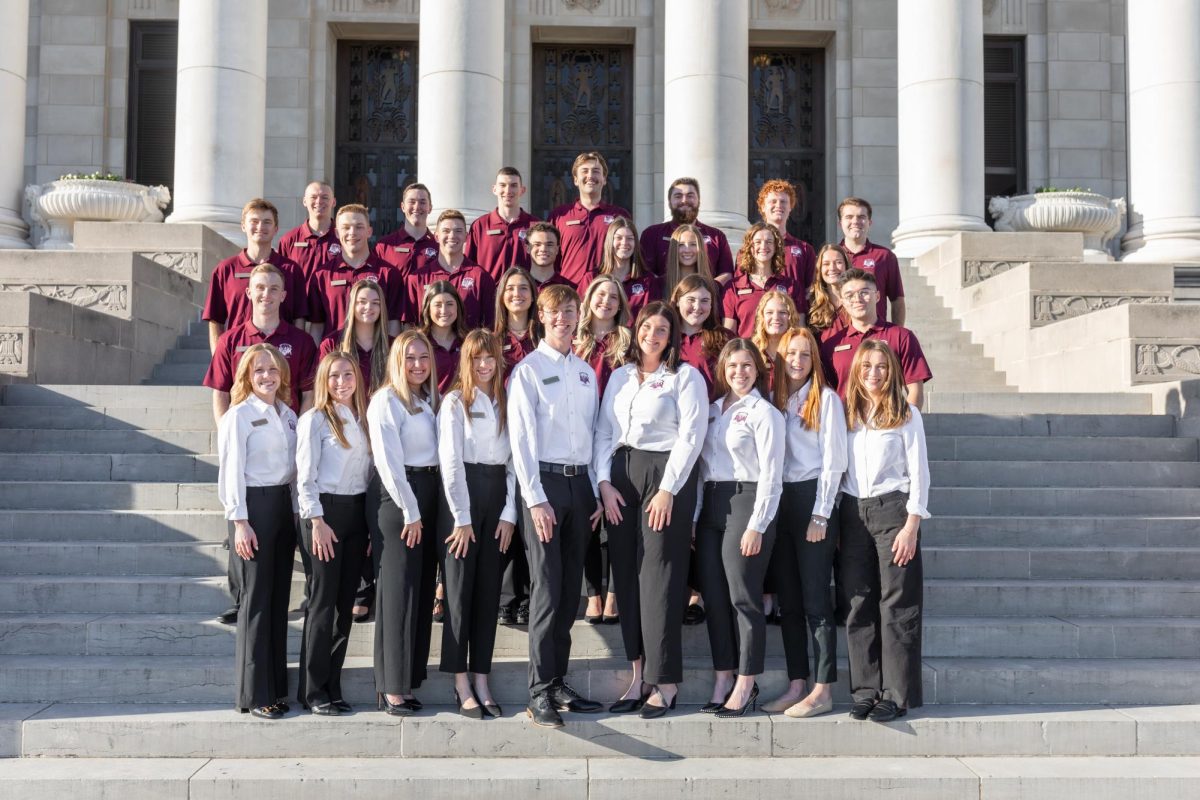Editor’s Note: This article has been updated to correct factual errors.
Although tattoos have a complicated history, from being symbols of power and status to barbarism, it is hard to dispute their pervasiveness throughout human history.
Heather Stalter, a tattoo artist at Sacred Sisters, said people have been seeking expression through tattoos for the past 5,300 years and that common patterns have continually drawn people’s attention.
Stalter said she has found a meaningful way to participate by working at Sacred Sisters Tattoo Studio, a female-owned and all-female-staffed tattoo studio in College Station.
“I’ve always been interested in any forms of art that stand the test of time in a human sense,” Stalter said. “This includes tattoos, crafts and pottery because humans everywhere participate in these specific types of art and use it as a way to interact with their culture.”
Although Stalter initially planned on going into art therapy, working with clinicians to help patients work through their emotions leveraging art, she realized that practicing her craft full-time was a priority for her. Stalter said that once she found the tattoo apprenticeship with Sacred Sisters in 2020, she instantly fell in love with how her work allowed her to create lasting art that is worn with pride everyday by hundreds of people.
“If you think about it, creating tattoos is an ancient art form,” Stalter said. “The oldest evidence of tattoos comes from Otzi the iceman. He is an old mummy of a European iceman whose body was recovered from the Similaun glacier during an archeological dig. He is 5,300 years old and has several tattoos.”
There is a lot that can be learned about people’s creative interests based on their tattoos, Stalter said. She describes how people across the world have been drawn to similar patterns and iconography for thousands of years.
“A lot of time, people will rag on Pinterest tattoos and there is a lot of stigma around getting a small wave tattoo or a crescent moon tattoo, but if you go back in history and study tattoos, the same kind of small, repeated images are everywhere,” Stalter said. “Humans just really like these patterns so it is silly to rag on Pinterest tattoos when we are just participating in being human like everyone throughout history.”
Stalter said that her biological family treated tattoos as a valuable form of self-expression, but she sympathizes with the apprehension behind getting tattoos due to their permanent nature given that her adoptive family is more conservative. She offered advice on how to navigate the process of committing to a tattoo.
“Your body is your body and you’ll be the only one living with the tattoo on your skin for the rest of your life,” Stalter said. “As long as you don’t do anything disrespectful to other people and go into getting a tattoo with the intention of honoring yourself, then I don’t think you can go wrong.”
Being part of a female-owned and staffed tattoo studio has been one of the best experiences, Stalter said. She feels supported by her team, more comfortable with her clients and is better able to focus on continually improving her art.
“In this studio, we are all big on learning continuously,” Stalter said. “We are constantly learning new skills and techniques to grow as artists. I love that we have the flexibility to learn more or even take a step back as needed. For me, that was huge because the vibe of the shop sets up how you work as an artist. I truly feel like I’m with my sisters in the studio, which is why the name of the studio makes so much sense.”
Stalter said she loves doing first-time tattoos and setting people up for a comfortable experience that they should expect each time they get a tattoo. This means offering clients the time, attention and courtesy to capture the sentimental value of each design.
“The [studio] gravitates more female clients to us in the best way,” Stalter said. “Sometimes you hear really crazy tattoo stories from other people involving not great experiences. I’ve had, on the whole, only a wonderful experience. Women tend to be a lot more polite, decisive and a lot kinder.”
Stalter said that in her spare time she likes to submit her original tattoo designs to various galleries for exhibition and has been observing a growing appreciation towards tattoo art. While traditionally galleries have only displayed certain mediums of art like oil paintings, ceramics or sketches, there is a broadening understanding of what pieces carry creative capital, Stalter said.
“Tattoos used to be considered low-class art,” Stalter said. “Historically speaking, rich people never really collected tattoos because you physically can’t, while all the other art forms like oil paintings or ceramics that are traditionally favored could be collected and sold for profit. That’s why there is a very big difference in how the people of upper and lower class collect art.”
Stalter said she finds it encouraging that society is starting to set aside the stigma that has plagued tattoos for a long time. The future holds expanding opportunities for artists interested in body art to show their creativity, Stalter said.
“I’ve been noticing a shift towards embracing body art more openly now, which is very nice,” Stalter said. “Tattoo art is legitimate art. For better or worse, tattoos are art that you own, and even when you’re pressed for money, you can’t sell your tattoo design like other pieces of art, but it should be cherished all the same.”

















